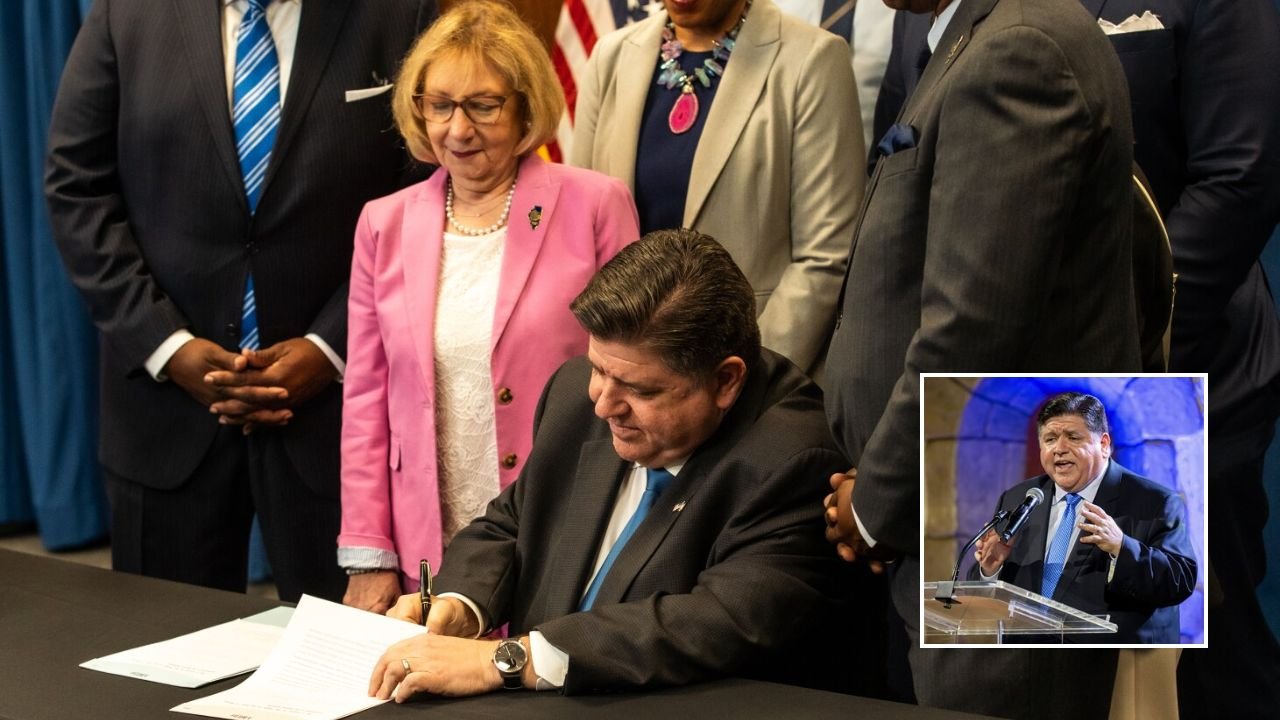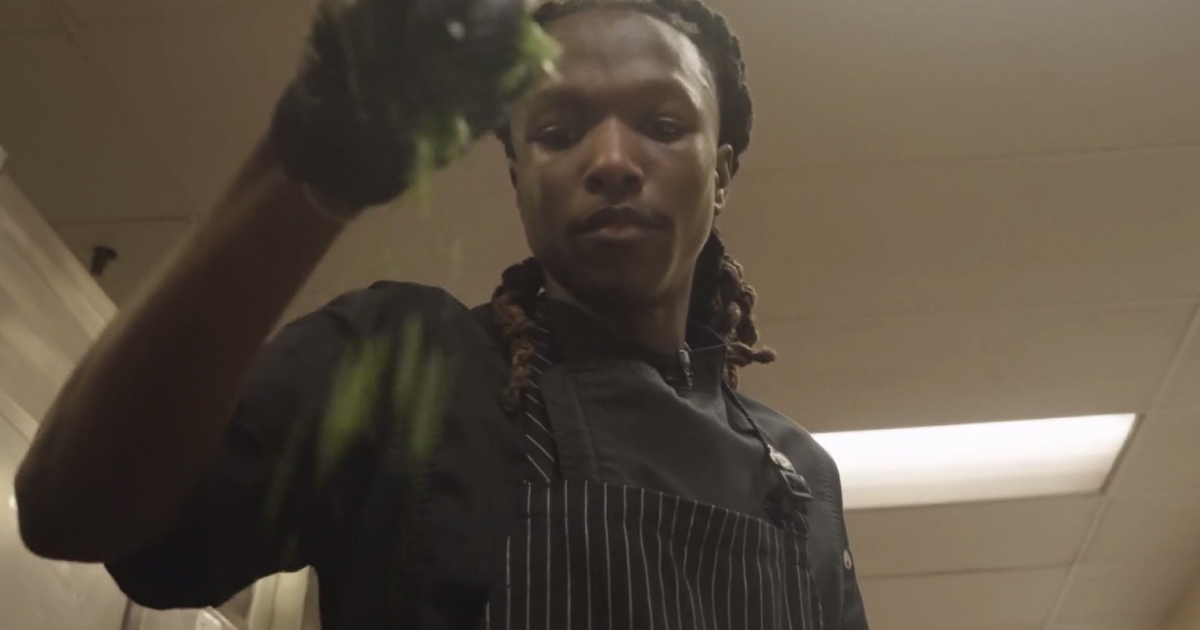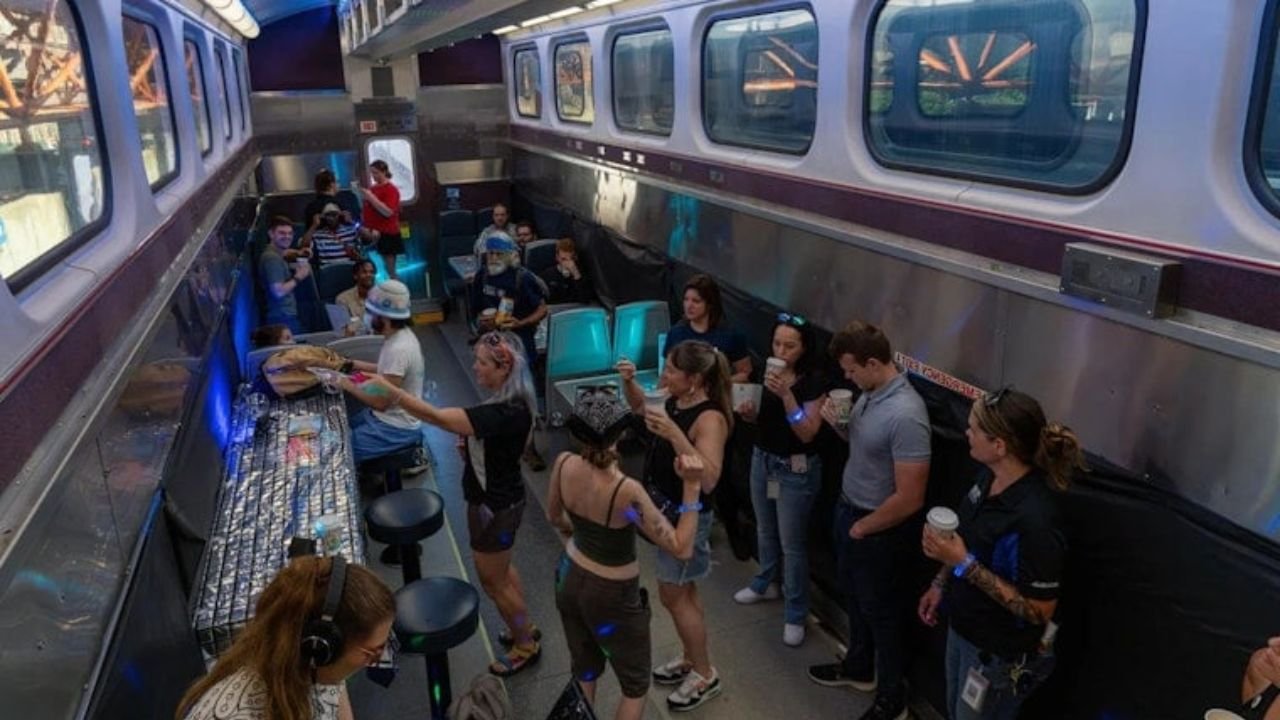CHICAGO — Illinois Governor J.B. Pritzker signed off on the state’s largest budget in history Monday, touting it as a responsible and balanced $55.1 billion plan — even as critics warn it’s riddled with shortfalls, last-minute decisions, and fiscal uncertainty under President Donald Trump’s administration.
Calling it a difficult year shaped by federal unpredictability, Pritzker blamed what he dubbed the “Trump slump” — pointing to lagging national economic growth, GOP-driven tax cuts, and threats to essential programs like health care and food assistance.
“The Trump administration is spending wildly on tax cuts for their wealthy friends,” Pritzker said during the budget signing in the West Loop. “Republicans in Congress are gutting support for working parents, seniors, and children. That’s made this year harder than most.”
Key Cuts and New Revenue Sources in the Budget
Despite its size, the budget was described by insiders as one of the most difficult of Pritzker’s tenure, with roughly $400 million in cuts and new revenue strategies to plug a projected $1 billion shortfall.
Major components include:
-
$700 million in new taxes, including sportsbook fees of $0.25–$0.50 per wager
-
Increased nicotine taxes (up to 45%) on cigarettes, e-cigarettes, pouches, and chewing tobacco
-
Elimination of health benefits for roughly 30,000 immigrant adults aged 42–64
-
A $100 million emergency reserve to soften potential federal funding loss
The Health Benefits for Immigrant Adults program was the single largest casualty, while a similar program for seniors 65+ was preserved at a cost of $110 million.
Education and Rainy Day Fund Still Receive Boosts
Despite the squeeze, Pritzker highlighted the following wins:
-
$307 million increase in K–12 education funding
-
Contributions above the required minimum for state pensions
-
Additional deposits into Illinois’ rainy day fund
“That’s hard to do while balancing the budget, but we did. Not everyone can say that,” the governor said.
Pushback from Republicans and Fiscal Watchdogs
Republican lawmakers, who unanimously opposed the bill, called it “unprecedented taxpayer-funded spending growth” without “meaningful tax relief” for families already burdened by inflation.
Senate Minority Leader John Curran blasted the package as irresponsible:
“This growth holds our state back. It delivers no real relief and adds risk.”
And in a stark warning, Civic Federation President Joe Ferguson described the budget as:
“An incomplete product, at an ambiguous moment, brought forward at the last minute.”
Ferguson criticized lawmakers for avoiding hard structural reforms — like expanding the sales tax base or making taxation more equitable.
A Budget Under Political Pressure
Analysts also noted that Democratic supermajorities had to rush the final vote just minutes before a midnight deadline. The looming possibility that Trump’s administration could target Democratic-led states like Illinois for federal funding cuts hovered over negotiations throughout spring.
The budget’s reliance on volatile revenue sources like sports betting taxes — already under scrutiny by giants like FanDuel and DraftKings — raises questions about its long-term sustainability.
“They didn’t really dig into the hard stuff,” Ferguson concluded.
Is Illinois Budgeting in the Right Direction?
Do you agree with the way Illinois leaders are handling this year’s record budget? Should more be done for working families, or is the state on the right fiscal path? Share your views now at ChicagoSuburbanFamily.com and join the policy conversation that affects us all.














